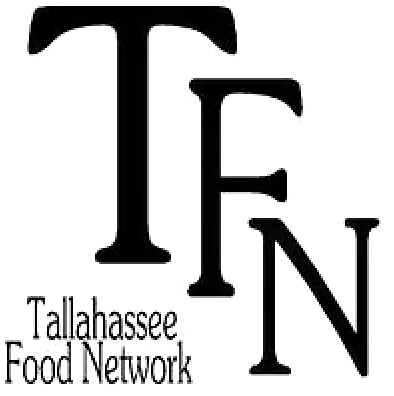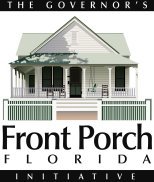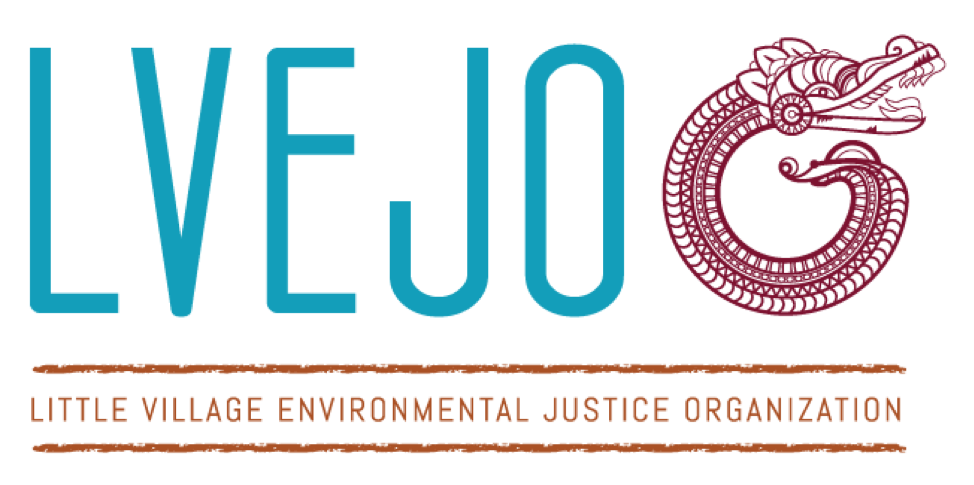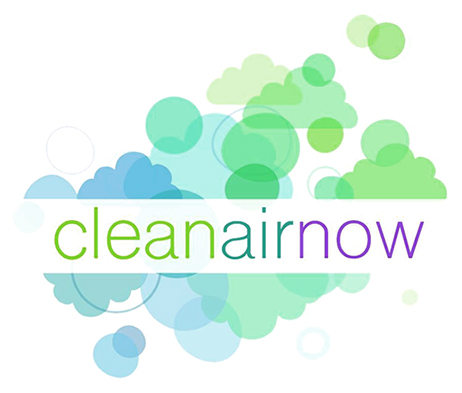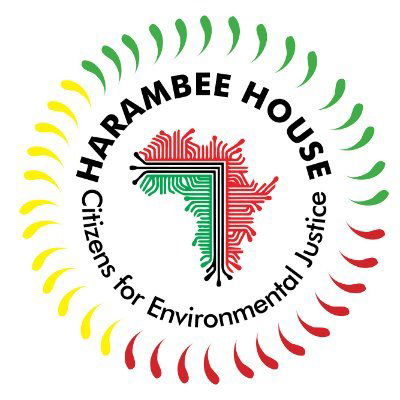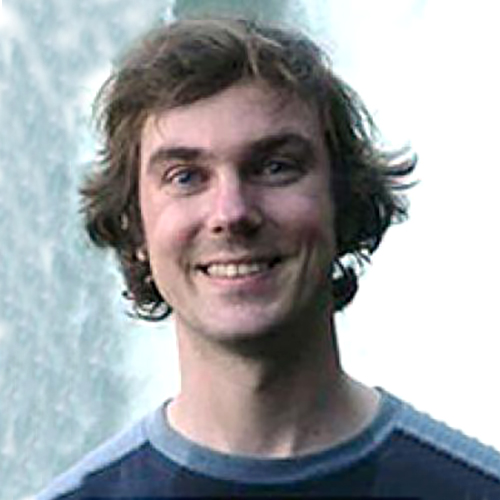In October 2022, a delegation of Moving Forward Network (MFN) members attended the All-In conference. At this convening, the MFN Research Workgroup, led by Dr. P. Qasimah Boston and Dr. Bruce Strouble, hosted a panel discussion to share experiences of four grassroots MFN members with community-based participatory research (CBPR).
Dr. P. Qasimah Boston and Dr. David Rahn, Associate Professor with the University of Kansas’ Department of Geography and Atmospheric Science and member of the MFN Research Workgroup, facilitated the discussion.
This effort was an extension of the primary goal of the Research Workgroup, which is to ensure that research partnerships between academia and community are grounded in the principle of “research by us, for us.”
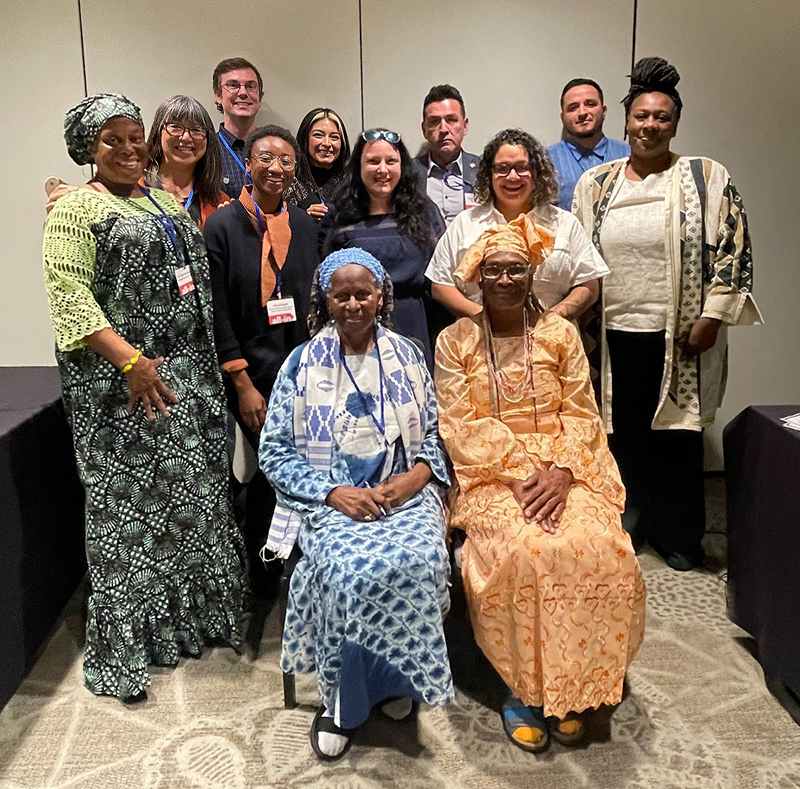
The MFN delegation at the All In Conference, October 2022.
Photo provided by Molly Greenberg.
Queen Mother Miaisha Mitchell, co-founder of Tallahassee Food Network and director of The Greater Frenchtown Revitalization Council, presented the efforts of the Health Equity Alliance of Tallahassee (HEAT). Since 2007, HEAT has gathered researchers, community members, and local policy members to explain and eliminate disparities in health. Queen Mother emphasized the role that transparency, measurable and meaningful objectives, long-term engagement, and frank conversations about race play in the success of the partnership.
“The people most impacted by the problem should be at the table, always, through every aspect of the process.”
Beto Lugo-Martinez, co-executive director for ClearAirNow, talked about the importance of seeing CBPR as more than a method for data collection. He gave an example from his past work in California, in which he helped build one the largest community air monitoring networks in the country. The network found it difficult to measure health outcomes due to the timeline of the project and lack of community capacity, so the effort switched its focus to policy change outcomes.
This change grounded the air monitoring project in a tangible goal and provided the groundwork for a replicable model. Motivated by the work of the network, all California Air Districts now work with community members to monitor and regulate air quality. Lugo-Martinez also spoke of SciCAN, a new web platform he has spearheaded to help connect grassroots organizers, technical experts, and community members.
“I’ve heard from many academics– ‘our community groups, I don’t know why they keep me around. I fail, I do this, I do that…’ I tell them that is a good thing. Because you’re building trust, and trust-building takes a long time.”
Kim Wasserman, executive director of the Little Village Environmental Justice Organization (LVEJO), spoke of the organization’s several efforts to push the city of Chicago to act on local inequities. Over a period of 20 years, LVEJO fought to clean up the largest superfund site in the state and turn it into a park. More recently, the organization mobilized high school students to conduct truck counts along an industrial corridor, something that the city of Chicago had never done for the Little Village neighborhood.
The drastic results of this community-collected data led to a partnership with the Natural Resources Defense Council to create a cumulative impact map of the neighborhood. This data has informed advocacy and advanced efforts to instruct the city of Chicago on how and where to continue environmental monitoring.
“When community doesn’t have control [within academic partnerships], we are replicating colonial mentality, we are replicating exploitation, and we are replicating extraction on our community. We resist that as an organization.”
Dr. Mildred McClain, executive director of the Harambee House/Citizens for Environmental Justice, stressed the importance of solidarity, equal partnership, and movement-building within community partnerships. She noted that CBPR, if implemented correctly, should change the behavior of all involved: academic institutions and government should learn to better serve marginalized communities, and in turn, marginalized communities should learn to fully recognize the power they can and must hold over what happens to their neighborhoods.
“CBPR undergirds the whole notion of how the environmental justice movement got started: we speak for ourselves.”
Other members of the MFN in attendance at the All-In Conference included: Yolanda Brown-Alston, Atenas Mena, Jose Acosta, Aisha Balogun, and Molly Greenberg.
Stay up to date with the member organizations who spoke at the conference!
David Rahn
- Website
- MFN Skillshare: Global to Local Climate Change


